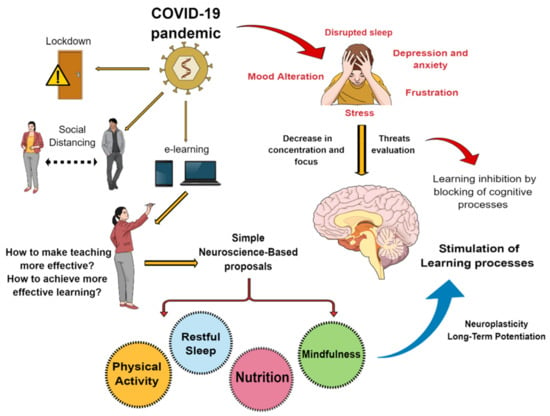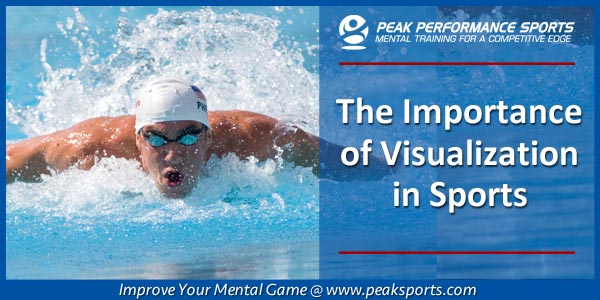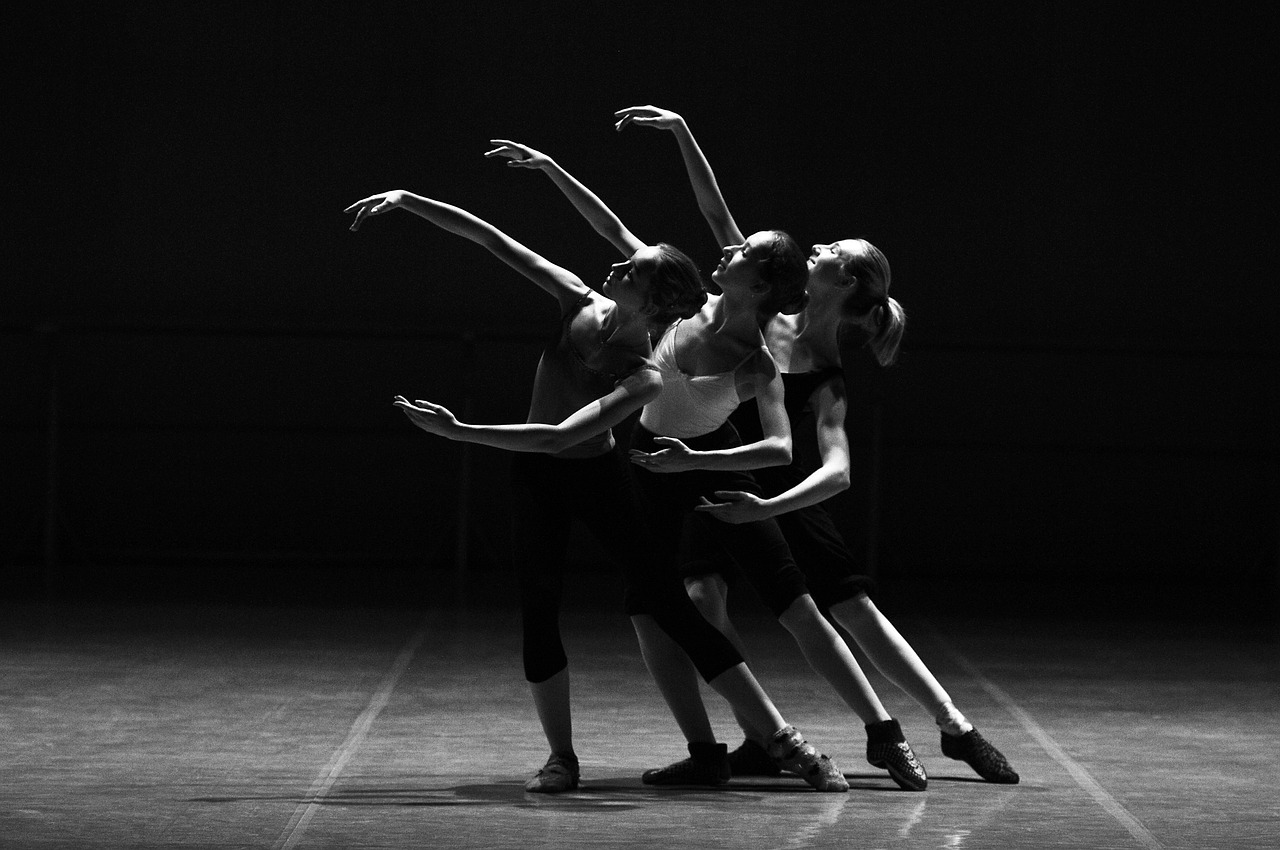Introduction
In the world of sports, where physical prowess and skill are often the focus, the power of the mind is an underestimated force. Athletes who harness the principles of mindfulness and meditation discover a secret weapon that can enhance their performance on the field, court, or track. In this article, we delve into the transformative effects of mindfulness and meditation in sports, revealing how mental focus can propel athletes to new heights of excellence.
In the world of sports, where physical prowess and skill are often the focus, the power of the mind is an underestimated force. Athletes who harness the principles of mindfulness and meditation discover a secret weapon that can enhance their performance on the field, court, or track. In this article, we delve into the transformative effects of mindfulness and meditation in sports, revealing how mental focus can propel athletes to new heights of excellence.
The Mind-Body Connection in Sports:
While athletes dedicate countless hours to training their bodies, many are now recognizing that the mind plays an equally critical role in achieving peak performance. The mind-body connection is not a new concept, but its integration into sports has gained significant attention in recent years. Understanding how mental states affect physical performance has become a game-changer.
Mindfulness in Sports:
Mindfulness, the practice of staying fully present in the moment without judgment, has become a fundamental tool for athletes. Here’s how it can benefit them:
Enhanced Concentration: Mindfulness helps athletes tune out distractions and stay focused on the task at hand. Whether it’s a crucial free throw or a penalty kick, the ability to concentrate can make all the difference.
Reduced Stress: Competition often brings stress and anxiety. Mindfulness techniques, such as deep breathing and meditation, can help athletes stay calm under pressure, preventing “choking” in critical moments.
Improved Emotional Regulation: Mindfulness empowers athletes to manage their emotions effectively. This emotional control can prevent outbursts, enhance decision-making, and maintain a positive attitude.
Enhanced Body Awareness: Understanding their bodies better, athletes can detect early signs of fatigue or injury, allowing them to make necessary adjustments to prevent further damage.
Meditation and Visualization:
Meditation, a close companion of mindfulness, involves deep concentration and can be used as a powerful visualization tool. Athletes who practice meditation can:
Mental Rehearsal: Visualizing success can train the brain to believe it’s possible. Athletes who vividly imagine themselves making that winning shot or crossing the finish line first often find that they perform better in reality.
Stress Reduction: Regular meditation sessions can reduce overall stress and anxiety levels, enabling athletes to approach their sport with a clear, relaxed mind.
Improved Sleep: Quality sleep is essential for recovery and optimal performance. Meditation can help athletes relax before bedtime, leading to better rest.
Embracing the Mind as a Muscle:
Just as athletes condition their bodies through physical training, they can condition their minds through mindfulness and meditation practices. These techniques are not a quick fix; they require dedication and consistency. Athletes who commit to regular mental training often experience a significant shift in their performance and overall well-being.
A Holistic Approach to Excellence:
In conclusion, the integration of mindfulness and meditation into the world of sports represents a holistic approach to achieving excellence. It’s not just about running faster or jumping higher; it’s about optimizing the mind-body connection. Athletes who embrace these practices find themselves not only excelling in their respective sports but also enjoying a deeper sense of fulfillment and balance in their lives. Mindfulness and meditation are, indeed, the keys to unlocking new heights of sporting achievement.
You can also read more about this here: The Effect of Mindfulness and Meditation in Sports Performance A …
Athletic achievement isn’t solely about physical prowess; it’s about the profound connection between the mind and the body. The practice of mindfulness and meditation cultivates this connection, enabling athletes to fine-tune their mental focus and unleash their full potential. By training the mind to be present and fully engaged, athletes can overcome challenges, improve decision-making, and perform at their peak.
nullYou can also read more about this here: How Does Meditation Improve Athletic Performance?

Stress and performance anxiety are common adversaries in the world of sports. The pressure to succeed, competition nerves, and the fear of failure can all undermine an athlete’s performance. Mindfulness and meditation techniques empower athletes to manage stress and anxiety effectively. By staying grounded in the present moment, athletes can reduce the mental clutter that can impede performance and maintain a calm, focused mindset.
Stress and performance anxiety are formidable opponents that athletes frequently encounter. The world of sports is rife with the pressure to succeed, the relentless competition, and the haunting fear of failure, all of which have the potential to sabotage an athlete’s performance. In this demanding environment, mindfulness and meditation techniques emerge as powerful allies, equipping athletes with the tools to confront and conquer these mental adversaries.
Through mindfulness and meditation, athletes can gain a newfound sense of control over their thoughts and emotions. By learning to stay fully present in the moment, they can quell the mental cacophony that often interferes with optimal performance. This heightened awareness enables them to navigate the intricate nuances of their sport with a sense of calm and unwavering focus, transcending the distractions that might otherwise derail their efforts.
One of the key benefits of these practices is the cultivation of a resilient mindset. Athletes who regularly engage in mindfulness and meditation develop a mental toughness that allows them to confront adversity with poise. They become better equipped to rebound from setbacks, adapt to changing circumstances, and maintain their composure even in high-stakes situations.
Furthermore, these techniques promote physical well-being by reducing the physiological effects of stress. Lowered heart rates, decreased muscle tension, and improved breathing patterns contribute to enhanced physical performance. Athletes who incorporate mindfulness and meditation into their training regimen often find that they recover more quickly from injuries and experience fewer stress-related ailments.
In conclusion, stress and performance anxiety need not be insurmountable obstacles for athletes. By embracing mindfulness and meditation, they can harness the power of the present moment to overcome these challenges. These practices not only enhance their mental resilience but also improve their physical well-being, ultimately leading to improved performance and a more rewarding sports experience.
Should you desire more in-depth information, it’s available for your perusal on this page: Mindfulness meditation: A research-proven way to reduce stress

One of the central tenets of mindfulness is cultivating awareness. Athletes who practice mindfulness and meditation develop the ability to maintain laser-like concentration on the task at hand. This heightened level of attention allows athletes to pick up on subtle cues, anticipate opponents’ moves, and make split-second decisions that can be the difference between victory and defeat.
One of the central tenets of mindfulness is cultivating awareness, and this practice is increasingly finding its place in the world of sports. Athletes who integrate mindfulness and meditation into their training regimens discover a powerful tool for honing their mental prowess, and the benefits extend far beyond simple concentration.
Enhanced Focus and Concentration: Athletes who regularly engage in mindfulness exercises develop the ability to maintain laser-like focus during training and competition. They learn to quiet the noise of distractions and fully immerse themselves in the present moment. This heightened level of attention enables them to block out crowd noise, environmental factors, or internal doubts, allowing them to perform at their peak.
Anticipating Opponents’ Moves: Mindful athletes often possess a remarkable ability to pick up on subtle cues from their opponents. Whether it’s the slightest shift in body language or a micro-expression on an opponent’s face, this heightened awareness can be a game-changer. By recognizing these cues, athletes can anticipate their opponents’ moves, gaining a strategic advantage that can lead to success.
Enhanced Decision-Making: Split-second decisions are an integral part of sports, and mindfulness can significantly improve an athlete’s decision-making abilities. When athletes are fully present and aware, they can quickly assess situations and respond with greater clarity and precision. This can be especially critical in fast-paced sports like basketball or soccer, where a moment’s hesitation can make all the difference.
Stress Reduction: Sports often come with high levels of pressure and stress. Mindfulness equips athletes with techniques to manage stress effectively. By staying rooted in the present moment, they can prevent anxiety about the future or dwelling on past mistakes, maintaining their composure and performance under pressure.
Resilience and Mental Toughness: Mindfulness and meditation help athletes build mental resilience. They learn to acknowledge setbacks and failures without dwelling on them, enabling quicker bounce-backs from defeats and setbacks. This mental toughness is invaluable in the world of sports, where setbacks are inevitable.
Improved Mind-Body Connection: Mindfulness fosters a deeper mind-body connection. Athletes become more attuned to their bodies, noticing signs of fatigue or injury earlier, which can lead to better self-care and injury prevention.
In summary, mindfulness isn’t just about concentration; it’s about an athlete’s ability to tap into their inner mental resources, enhancing their awareness, resilience, decision-making, and overall performance. As more athletes recognize the potential of mindfulness in sports, it is becoming an integral part of their training routines, helping them achieve new heights in their athletic endeavors.
To expand your knowledge on this subject, make sure to read on at this location: Mindfulness meditation: A research-proven way to reduce stress

Visualization is a powerful technique employed by many successful athletes. By practicing mindfulness and meditation, athletes can harness the power of mental rehearsal. They can vividly imagine themselves executing flawless performances, overcoming obstacles, and achieving their goals. This mental rehearsal not only boosts confidence but also primes the body for optimal performance when the actual event arrives.
“Visualization is a powerful technique employed by many successful athletes. By practicing mindfulness and meditation, athletes can harness the power of mental rehearsal. They can vividly imagine themselves executing flawless performances, overcoming obstacles, and achieving their goals. This mental rehearsal not only boosts confidence but also primes the body for optimal performance when the actual event arrives.”
Expanding on the concept of visualization and its profound impact on athletic performance:
The Mind-Body Connection: Visualization reinforces the intricate connection between the mind and body. As athletes mentally rehearse their actions, their brain sends signals to the muscles, preparing them for action. This heightened mind-body synergy is essential for split-second decision-making and precise execution in sports.
Stress Reduction: Mindfulness and meditation techniques not only enhance visualization but also reduce stress and anxiety. Athletes learn to remain calm under pressure, which is vital in high-stakes competitions. The ability to manage stress can make the difference between success and failure in critical moments.
Enhanced Muscle Memory: Visualization can strengthen muscle memory. When athletes repeatedly imagine themselves performing specific actions, their muscles become more familiar with those movements. This contributes to improved coordination and execution when they physically engage in their sport.
Goal Achievement: Visualization is a powerful tool for goal setting and achievement. Athletes can see themselves reaching milestones, whether it’s winning a race, making a perfect shot, or breaking a personal record. This mental rehearsal instills a sense of purpose and motivation that drives them to work harder and persevere in the face of challenges.
Injury Rehabilitation: Visualization is not limited to performance enhancement; it’s also valuable during injury rehabilitation. Injured athletes can use visualization to maintain a connection with their sport and imagine themselves healing and returning to peak form. This mental engagement can expedite the recovery process.
Mental Toughness: Mental rehearsal builds mental toughness. Athletes learn to visualize overcoming obstacles, such as tough opponents or adverse weather conditions. This mental resilience equips them to handle adversity with a positive mindset, increasing their chances of success.
Confidence Booster: Visualizing success reinforces self-confidence. When athletes consistently see themselves excelling in their sport, they develop a strong belief in their abilities. This self-assuredness can be a game-changer, allowing them to perform at their best without self-doubt holding them back.
Post-Event Analysis: Visualization isn’t limited to pre-event preparation. Athletes can also use it for post-event analysis. They can replay their performance mentally, identifying areas for improvement and learning from their experiences. This introspective practice supports ongoing growth and development.
Lifelong Skill: Visualization isn’t exclusive to elite athletes; it’s a skill that can benefit individuals in various aspects of life. Whether facing a challenging presentation, an important interview, or a personal goal, the ability to visualize success and remain composed under pressure is a valuable life skill.
In conclusion, visualization, coupled with mindfulness and meditation, is a multifaceted technique that empowers athletes to excel mentally and physically. It’s a potent tool for enhancing performance, managing stress, building resilience, and achieving long-term goals. Beyond the world of sports, it’s a skill that can enhance the quality of one’s life in countless ways.
You can also read more about this here: How Imagery and Visualization Can Improve Athletic Performance

Emotions can run high in sports, and managing them effectively is crucial. Mindfulness and meditation equip athletes with the tools to regulate emotions, whether it’s channeling the energy of excitement or calming the nerves of anxiety. By staying emotionally balanced, athletes can perform with a clear mind and greater control.
nullDon’t stop here; you can continue your exploration by following this link for more details: Mindfulness Mechanisms in Sports: Mediating Effects of Rumination …

The benefits of mindfulness and meditation extend beyond performance enhancement. These practices aid in recovery and injury rehabilitation. Athletes can use mindfulness to manage pain, reduce inflammation, and accelerate healing. By maintaining a positive mindset during recovery, athletes can return to their sport stronger and more resilient.
The integration of mindfulness and meditation into the realm of sports and athletic performance is a multifaceted journey, with profound implications not only for performance enhancement but also for recovery and injury rehabilitation. Beyond sharpening the mental focus needed for peak performance, these practices offer an invaluable toolkit for athletes facing physical setbacks and injury-related challenges.
Pain Management: One of the remarkable powers of mindfulness is its ability to alter the perception of pain. Athletes often encounter pain as they push their bodies to the limits during training and competition. Mindfulness techniques, such as deep breathing and visualization, can help athletes manage pain more effectively. By training their minds to respond calmly to discomfort, athletes can endure and overcome pain during recovery and rehabilitation.
Reducing Inflammation: Chronic inflammation can prolong recovery times and hinder the healing process. Emerging research suggests that meditation and mindfulness practices may have anti-inflammatory effects on the body. Reduced stress, a common byproduct of these practices, can help regulate the body’s inflammatory response, potentially speeding up recovery.
Accelerating Healing: A positive mindset plays a crucial role in the recovery process. Mindfulness and meditation help athletes maintain an optimistic outlook during rehabilitation, which can enhance the body’s natural healing mechanisms. Stress and negativity can impede recovery, while a calm and focused mind can promote healing and tissue repair.
Physical and Mental Alignment: Injured athletes often experience a disconnect between their physical and mental states. Mindfulness helps bridge this gap by fostering a harmonious connection between the mind and body. By staying attuned to their bodies and emotions, athletes can make more informed decisions about their recovery, adjust training plans as needed, and avoid pushing themselves too hard or too soon.
Stress Reduction: Injuries can be emotionally challenging for athletes, leading to stress, anxiety, and even depression. Mindfulness and meditation techniques offer powerful tools for managing these emotional challenges. They provide a safe space for athletes to process their feelings, reduce anxiety, and maintain mental clarity throughout the recovery process.
Resilience Building: Recovery from injuries often involves setbacks and moments of frustration. Mindfulness and meditation teach resilience by helping athletes navigate these challenges with composure and perseverance. This resilience extends beyond the recovery period and becomes an integral part of an athlete’s overall mental toughness.
Preventing Re-injury: Athletes who return to their sport after an injury sometimes struggle with the fear of reinjury. Mindfulness can help address this fear by enhancing body awareness and helping athletes trust their bodies again. It allows them to focus on the present moment and perform with confidence, reducing the risk of future injuries.
In conclusion, mindfulness and meditation are not merely tools for enhancing athletic performance; they are invaluable resources for athletes facing the hurdles of recovery and injury rehabilitation. By incorporating these practices into their routines, athletes can manage pain, reduce inflammation, and accelerate healing. Equally important, they can foster a positive mindset, enabling them to return to their sport not only stronger physically but also more resilient mentally. This holistic approach to athleticism acknowledges that both the body and the mind play essential roles in an athlete’s journey to success.
To expand your knowledge on this subject, make sure to read on at this location: The psychology of the female athlete: how mental health and …

Conclusion
Mindfulness and meditation are not just buzzwords; they are transformative tools that empower athletes to tap into their mental reserves and enhance their performance. By embracing these practices, athletes can navigate the mental hurdles that often accompany competition, achieve a state of flow, and elevate their game to new heights. The integration of mindfulness and meditation in sports is a testament to the holistic nature of athletic achievement, where physical prowess is harmoniously united with mental focus, resulting in true excellence on and off the field.
Mindfulness and meditation are not just buzzwords; they are transformative tools that empower athletes to tap into their mental reserves and enhance their performance. By embracing these practices, athletes can navigate the mental hurdles that often accompany competition, achieve a state of flow, and elevate their game to new heights. The integration of mindfulness and meditation in sports is a testament to the holistic nature of athletic achievement, where physical prowess is harmoniously united with mental focus, resulting in true excellence on and off the field.
Enhanced Mental Resilience: Mindfulness and meditation equip athletes with the mental resilience necessary to weather the storm of high-stakes competition. When faced with setbacks, they learn to acknowledge their emotions without judgment and quickly refocus their energy on the task at hand. This adaptability is a key ingredient in sustained success.
Precision and Focus: Through mindfulness and meditation, athletes sharpen their ability to concentrate. They can hone in on the smallest details of their performance, whether it’s a golfer visualizing the perfect swing, a basketball player concentrating on their free throw, or a gymnast visualizing a flawless routine. This heightened focus directly translates to improved execution.
Stress Management: Competitive sports often come with immense pressure, and mindfulness and meditation provide athletes with effective stress management techniques. By learning to stay present and grounded, athletes can reduce anxiety and perform at their best, even in high-pressure situations like penalty kicks in soccer or clutch moments in basketball.
Injury Recovery and Prevention: Mindfulness can play a role in injury recovery and prevention. Athletes who practice mindfulness may have a heightened awareness of their bodies, enabling them to detect early signs of injury and take preventative measures. Additionally, meditation can accelerate the healing process by reducing stress, which can impede recovery.
Improved Decision-Making: In fast-paced sports like football or tennis, quick and accurate decision-making is crucial. Mindfulness and meditation help athletes make better decisions under pressure by cultivating a calm and clear mind. This can lead to more strategic and efficient gameplay.
Team Cohesion: Mindfulness and meditation can be employed to strengthen team cohesion. When a team practices mindfulness together, it fosters a sense of unity, improves communication, and enhances trust among teammates. A harmonious team dynamic often translates into better on-field performance.
Longevity in Sport: Athletes who incorporate mindfulness and meditation into their routines often experience longer, more successful careers. These practices promote self-care, reduce burnout, and help athletes maintain their passion and motivation over the years.
Life Skills Beyond Sports: The skills athletes develop through mindfulness and meditation are transferable to life beyond sports. They learn how to handle stress, set goals, and maintain discipline—valuable skills in any profession or personal endeavor.
Inspiration and Role Modeling: Athletes who openly embrace mindfulness and meditation serve as role models for younger generations. They inspire others to prioritize mental well-being and recognize that success goes hand-in-hand with mental strength.
A Balanced Life: Finally, the integration of mindfulness and meditation promotes a balanced life for athletes. They can excel in their sport while also maintaining emotional and psychological well-being, leading to healthier, happier lives both on and off the field.
In conclusion, mindfulness and meditation are not just tools for enhancing athletic performance; they are essential components of the holistic journey towards excellence in sports. Athletes who embrace these practices unlock their mental potential, enabling them to overcome challenges, make sound decisions, and perform at their peak, ultimately achieving true excellence in sports and enriching their lives in the process.
Should you desire more in-depth information, it’s available for your perusal on this page: Mindfulness Training Enhances Endurance Performance and …
More links
Additionally, you can find further information on this topic by visiting this page: Meditation in Sports: How and Why Meditative Focus Helps …
